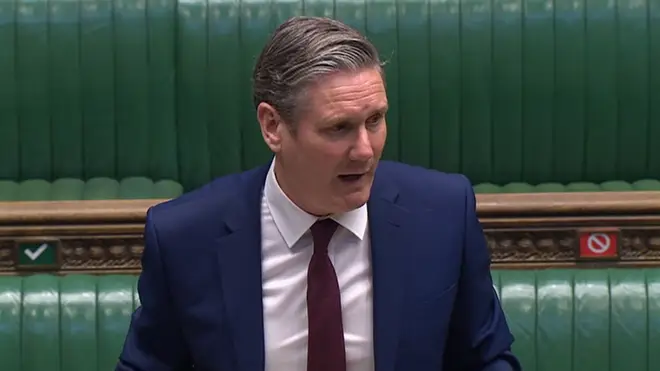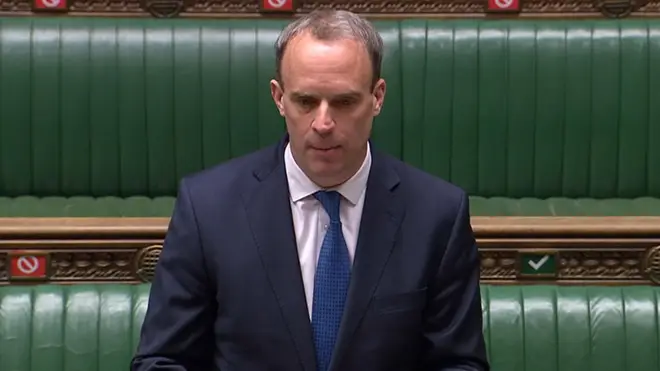
Nick Ferrari 7am - 10am
22 April 2020, 12:54

Keir Starmer asks how will the government expand testing capacity
New Labour leader Sir Keir Starmer today accused the Government of not making full use of its testing capacity to see if people have Covid-19.
In his first appearance during PMQs as Leader of the Opposition, he said the UK has been "very slow" on testing.
The opposition leader took on First Secretary of State Dominic Raab, who is standing in for Boris Johnson, during the first ever virtual Prime Minister’s Questions.
MPs who attended the House of Commons sat two metres apart to maintain social distancing, with others calling in via video link from their constituencies.

Health Secretary Matt Hancock committed to 100,000 tests a day taking place per day by the end of the month, but with eight days to go, figures showed that just 18,000 tests took place on Tuesday.
Mr Starmer said: "The Health Secretary made a very important commitment to 100,000 tests a day by the end of April, but yesterday the figure for actual tests was 18,000 a day and that was down from Monday, which was 19,000 tests a day.
"We're way behind the curve and the end of the month is a week tomorrow. So, what does the First Secretary expect to happen in the next eight days to get us from 18,000 tests a day to 100,000 tests a day?"
Responding, Mr Raab said testing capacity was up to 40,000 a day and will increase "exponentially" by the end of the month.

He added: "I do have to just correct him. Our capacity for tests is now at 40,000 per day, so I think that is an incredibly important milestone.
"Of course, he is right to say that in the final week that will require a big increase.
"But, of course, with a project like this, it does require an exponential increase in the final days and the final week of the programme."
But the Opposition leader hit back, saying: "The First Secretary says that there is capacity for 40,000 tests a day and I think it's really important that we fully understand what the First Secretary just said.

69 NHS staff have died from coronavirus
"Because that means that the day before yesterday, 40,000 tests could have been carried but only 18,000 tests were actually carried out.
"Now, all week I heard from the frontline, from care workers who are frankly desperate for tests for their residents and for themselves, desperate.
"They would expect every test to be used every day for those that need them."
Mr Raab replied: "It is about demand, we need to encourage those who are able to take the test to come forward.

Matt Hancock stands by pledge of 100,000 test by end of April
"He is right to say it is also about distribution, and some of the logistical and frankly transport challenges that people, particularly some of those that he described, will have in terms of getting to the tests.
"We are working with the local resilience forums to make sure that we can distribute the tests as effectively as possible.
"I do think it is important to have a target and to drive towards a target. We are making good progress, we're confident we'll meet it."
Labour leader Sir Keir also said the Government's testing plan for NHS workers had an "obvious problem".
Listen & subscribe: Global Player | Apple Podcasts | Google Podcasts | Spotify
He said: "Last week the Health Secretary said that every care worker who needed a test would get one. But the reality on the ground is very different, and there are very few tests indeed.
"The position is this - if a care worker has symptoms of coronavirus or a family member has symptoms, he or she has to self-isolate, quite rightly.
"To get a necessary test, they are then instructed to travel to a testing centre, which is often very many miles away."
He added: "Now there's an obvious problem with that system. Not all care workers will have access to a car, because they've got symptoms or family members have got symptoms they obviously can't use public transport, so it is little wonder we're seeing these pictures of half-empty testing centres.
"What reassurance can the First Secretary give to care workers on the front line that things will approve for them and fast?"